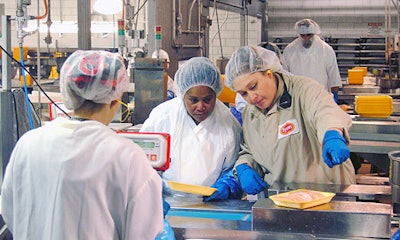
The U.S. Food and Drug Administration (FDA) finalized a rule as part of the implementation of the Food Safety Modernization Act (FSMA) to improve the accuracy of the food facility registration. The amendments update food facility registration requirements to better protect public health by requiring additional registration information that will improve the accuracy of the food facility registration database for facilities both in the United States and abroad.
Food facilities that manufacture/process, pack or hold food for consumption in the United States are required to register with the FDA, and this final rule adds new provisions to the current regulations to codify certain provisions of FSMA that were self-implementing and effective upon enactment of FSMA. Those provisions include the requirement of an email address for registration, required renewal of registration every two years, and that all food facility registrations must contain an assurance that the FDA will be permitted to inspect the facility at the times and in the manner permitted by the Federal Food, Drug and Cosmetic Act.
All food facility registrations are required to be submitted to the FDA electronically, although this requirement does not take effect until Jan. 4, 2020.
Registrations are now required to contain the type of activity conducted at the facility for each food product category. This will be required when the final rule becomes effective on July 14, 2016, which is prior to the October-December 2016 registration renewal period. Finally, beginning Oct. 1, 2020, food facilities will need to provide a unique facility identifier (UFI) as part of the registration process.
The final rule also amends the definition of a retail food establishment in a way that expands the number of establishments that are considered retail food establishments, and that are therefore not required to register with the FDA as food facilities. However, all food establishments, including retail food establishments, continue to have a responsibility to ensure their food is safe.
Editor's Insight: The FSMA marks a significant expansion of the FDA’s safety rules, which will hopefully improve food safety. The law is very extensive, and food supply chain service providers need to spend time understanding how it affects them. This FDA update specifies some additional information gathering requirements for registered food facilities.
The update also clarifies that facilities considered retail establishments do not need to register as food facilities. Hence, growers that primarily supply farmers markets are not considered food facilities, so they do not need to follow the FSMA’s preventive controls rules, noted Jim Gorny, the Produce Marketing Association’s vice president of food safety and technology, according to The Packer.
The preventive controls rules that registered food facilities must follow are among the most extensive FSMA requirements.
Food trade associations are good resources for food supply chain service providers seeking a better understanding of FSMA. The August Food Logistics will explore the requirements. 7-14-16 By Elliot Maras



















